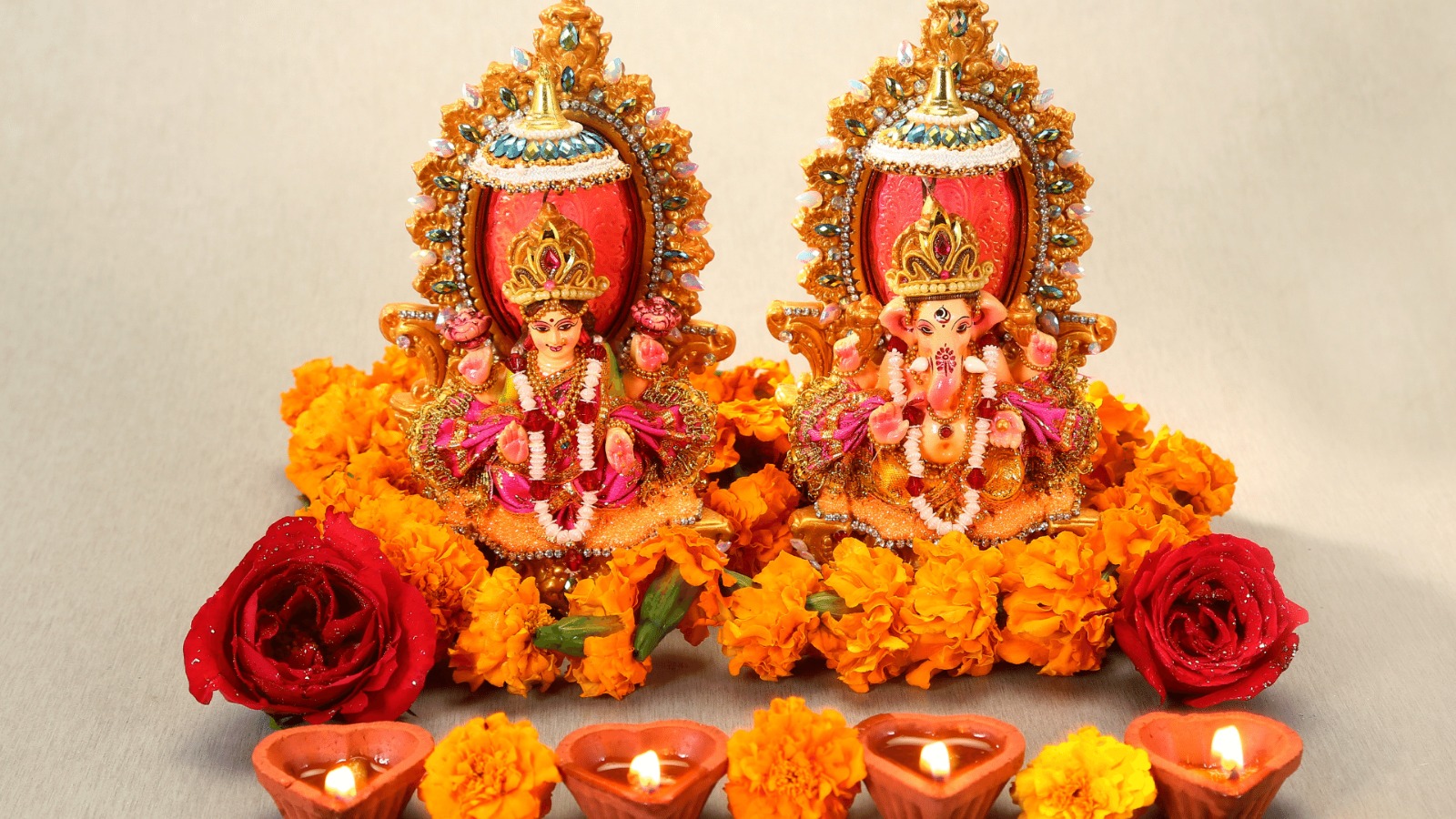Blog
Astrological Insights into Diwali Traditions and the Worship of Maa Lakshmi and Ganesha
Author: Astrologer
Category: Astrology
Posted on: Nov 11, 2023

Introduction
Astrology, the ancient science that studies the celestial bodies' influence on human affairs and natural events, has long played a significant role in shaping cultural and religious practices. One such celebration deeply intertwined with astrological beliefs is Diwali, the festival of lights celebrated by millions of Hindus around the world. In this blog, we delve into the astrological aspects that underpin the worship of Maa Lakshmi and Lord Ganesha during Diwali, shedding light on the cosmic connections that enrich this sacred tradition.
Also read - Exploring Ancient Wisdom of Vedic Astrology and Palmistry
The Cosmic Calendar
Diwali, also known as Deepavali, typically falls in October or November, marking the triumph of light over darkness. This auspicious timing is no coincidence but rather a result of the cosmic dance orchestrated by the celestial bodies. Astrologically, Diwali aligns with the new moon night, symbolizing the beginning of a new lunar cycle and the eradication of ignorance.
Lakshmi - The Goddess of Prosperity
Maa Lakshmi, the goddess of wealth and prosperity, holds a central place in Diwali celebrations. Astrologically, the worship of Lakshmi is closely associated with the positioning of Venus, the planet of love and abundance. During Diwali, it is believed that Venus reaches its pinnacle, radiating positive energy and bestowing blessings of wealth and harmony upon those who seek them.
The significance of Lakshmi's worship during Diwali is not only rooted in the astrological alignment but also in the symbolic meaning of light dispelling darkness. The presence of Venus in the night sky during this festival emphasizes the transformative power of light, leading devotees to invoke Lakshmi's divine energy to dispel financial difficulties and bring abundance into their lives.
Ganesha - The Remover of Obstacles
Lord Ganesha, the elephant-headed deity revered as the remover of obstacles, is another key figure in Diwali celebrations. Astrologically, Ganesha's association with Diwali is linked to the position of the moon, as Diwali marks the beginning of the lunar month of Kartika. Ganesha's worship is believed to ensure a smooth and obstacle-free journey throughout this lunar month.
The moon, representing the mind and emotions in astrology, is in a waxing phase during Diwali, symbolizing growth and positive energy. Devotees seek Ganesha's blessings to overcome challenges and embark on new endeavors with confidence. The astrological alignment during Diwali amplifies the potency of Ganesha's energy, making it an opportune time for spiritual growth and the removal of hindrances.
Chat here: Chat with astrologer online
Rituals and Practices
Astrology not only guides the timing of Diwali but also influences the rituals and practices associated with the worship of Maa Lakshmi and Ganesha. Devotees often perform traditional puja ceremonies during specific astrological windows to harness the maximum cosmic energy available during Diwali.
Offerings such as sweets, fruits, and lamps hold astrological significance, symbolizing the exchange of positive energies between the worshipper and the divine. The use of specific colors and gemstones aligns with astrological principles, enhancing the vibrational frequency of the rituals and deepening the connection with the celestial forces.
Maa Lakshmi's Puja
Timing: Devotees meticulously time Lakshmi Puja during the auspicious astrological window, usually aligned with the waxing moon and Venus's prominence in the night sky. This timing is considered crucial for attracting financial prosperity and abundance.
Symbolic Elements: The placement of specific items during the puja is influenced by astrological principles. For instance, the lotus flower, symbolizing purity and enlightenment, is often used as an offering, resonating with Venus's positive and harmonious energies.
Mantras and Chants: The recitation of specific mantras during Lakshmi Puja is believed to harmonize with the cosmic vibrations prevalent during Diwali. These mantras, derived from ancient texts, carry profound astrological significance and are chanted to invoke the goddess's blessings.
Astrologically Aligned Yantras: Devotees may incorporate yantras or sacred geometric diagrams during the worship. These yantras, constructed based on precise astrological calculations, amplify the energy flow and aid in attracting Lakshmi's divine blessings.
Lord Ganesha's Puja
Initiating New Beginnings: Astrologically, Diwali is considered a favorable time for initiating new ventures and endeavors. Therefore, the worship of Lord Ganesha precedes other festivities, seeking his divine intervention for a smooth and obstacle-free start.
Modak as an Offering: The modak, a sweet dumpling, is a traditional offering to Lord Ganesha during Diwali. Astrologically, the sweetness of the modak is believed to symbolize the positive and auspicious energies associated with the waxing moon during this period.
Chaturthi Tithi Significance: Diwali marks the Chaturthi tithi, the fourth day of the lunar month. This alignment is astrologically significant as it emphasizes Ganesha's association with this specific lunar phase, making the worship particularly potent for overcoming obstacles.
Firecrackers as Symbolic Removers of Obstacles: The tradition of bursting firecrackers during Diwali is not only a visual spectacle but also holds astrological symbolism. The loud sounds and bright lights are believed to drive away negative energies and obstacles, creating a clean slate for new beginnings.
Personal Astrological Considerations
Individuals often consult astrologers during Diwali to gain insights into their personal horoscopes. This practice helps in understanding the specific planetary influences on their lives and guides them in aligning their intentions with the cosmic energies prevalent during the festival.
Conclusion
In essence, the worship of Maa Lakshmi and Lord Ganesha during Diwali is a harmonious fusion of cultural traditions and astrological wisdom. By observing these rituals with a deeper understanding of the celestial influences, devotees aim to synchronize their aspirations with the cosmic energies, fostering a connection between the material and the divine. This unique blend of spirituality and astrology enriches the Diwali celebration, making it not only a festival of lights but a cosmic communion that transcends the boundaries of time and space.
Have any questions? Speak with an astrologer: Download the App Now






 SIGN IN WITH GOOGLE
SIGN IN WITH GOOGLE